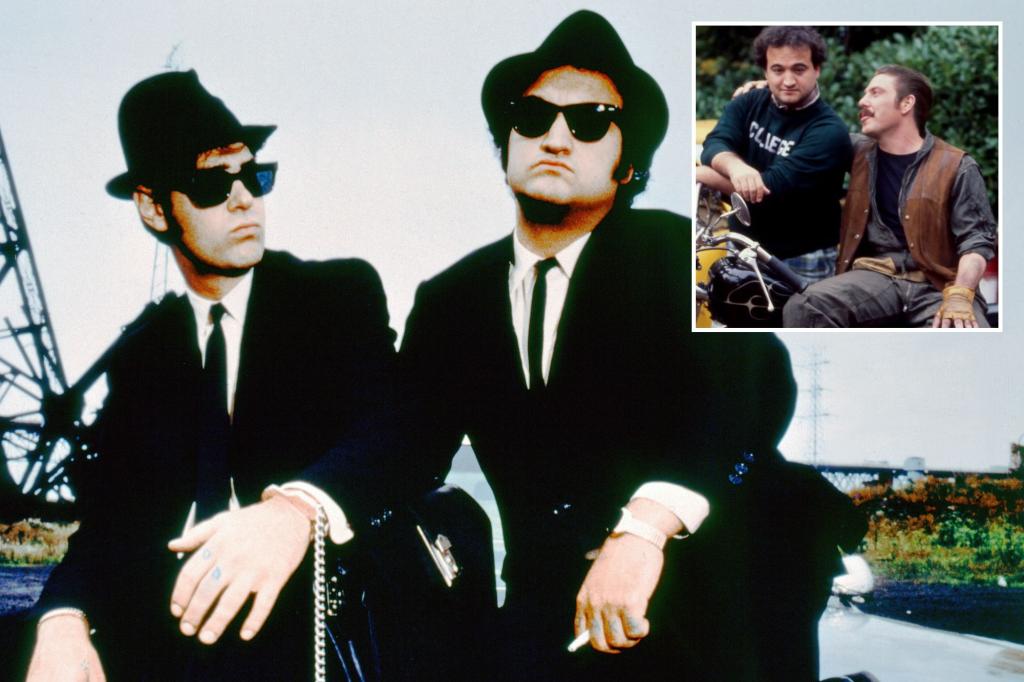During the filming of “The Blues Brothers” in 1979, John Belushi’s excessive revelry frequently impeded his ability to function effectively.
Amidst another setback caused by Belushi’s behavior, director John Landis finally confronted him in his trailer. Upon entering, Landis was met with a disheveled Belushi, his eyes vacant, surrounded by a mound of cocaine on the desk, a scene vividly depicted in Daniel de Visé’s book, “The Blues Brothers: An Epic Friendship, the Rise of Improv, and the Making of an American Film Classic” (Atlantic Monthly Press, March 19).
Expressing deep concern, Landis passionately exclaimed, “John, you’re destroying yourself. Please don’t jeopardize my film. Spare [Belushi’s wife] Judy, spare yourself.”
In a bold move, Landis disposed of an estimated “hundred thousand dollars worth” of cocaine by flushing it down the toilet, triggering a tense confrontation where Belushi lunged at him. The situation quickly escalated into a physical altercation before transforming into an emotional embrace, both men shedding tears. “John, this has to stop,” Landis mourned.
Renowned for his breakthrough performances on “Saturday Night Live” and in the 1978 hit “Animal House,” John Belushi descended into a lifestyle marred by relentless drug abuse, particularly intense cocaine use during the show’s second season.
Concerns about Belushi’s well-being due to his escalating drug dependency were raised by several individuals in his inner circle, including director John Landis and NBC executive Dick Ebersol. Ebersol assumed the role of Belushi’s guardian, ensuring he steered clear of trouble during the week.
Despite his personal turmoil, Belushi, in collaboration with his dear friend and creative ally Dan Aykroyd, delved into a musical project that culminated in the birth of the Blues Brothers. Their comedic prowess not only landed them opening slots for iconic comedian Steve Martin but also warmed up the audience for “Saturday Night Live” with their Blues Brothers routine.
The Blues Brothers’ triumph transcended television, as they clinched a record deal, shared the stage with R&B icons, and drew A-list celebrities to their performances. Their fame peaked with a chart-topping album and a successful film, all while maintaining a strong presence on “Saturday Night Live.”
Tragically, Belushi’s battle with addiction proved insurmountable. Despite Aykroyd’s attempts to persuade him to return for a promising project, “Ghostbusters,” Belushi’s life was tragically cut short at the age of 33 due to a lethal mix of heroin and cocaine.
At his memorial, Aykroyd paid tribute to their bond by playing “The 2,000 Pound Bee,” a song that held profound meaning for their friendship, symbolizing the enduring legacy of their partnership.
